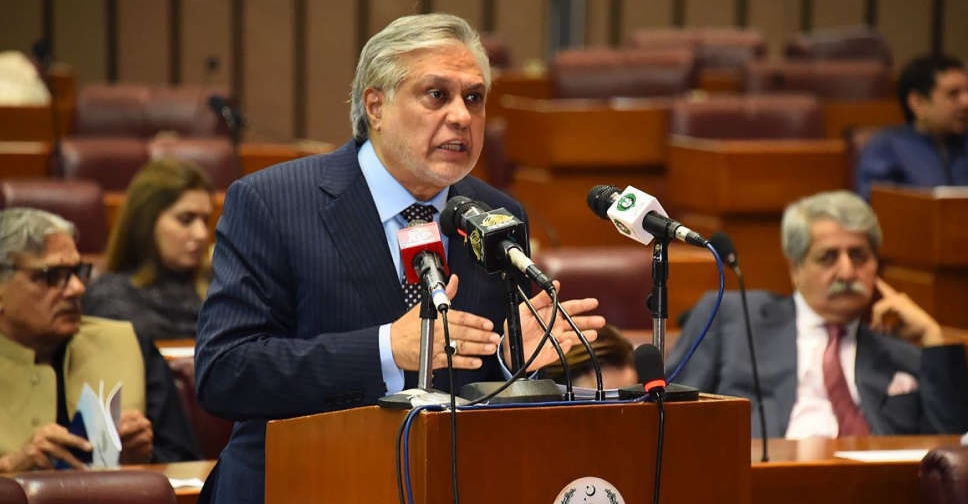
Pakistan's Finance Minister Ishaq Dar told parliament on Saturday the government had lifted all restrictions on imports.
Pakistan has changed its budget for the financial year starting on July 1, Finance Minister Ishaq Dar said on Saturday, including the latest fiscal tightening measures dictated by International Monetary Fund in a final effort to clinch a stalled rescue package.
The South Asia nation imposed the restrictions in December to curb its current account deficit, one of the major concerns of the International Monetary Fund since it began talks to clear Pakistan's ninth review early this year.
"Pakistan and IMF had detailed negotiations for the last three days as a last effort to complete the pending review," he told parliament.
For the fiscal year starting next month, Pakistan will raise a further 215 billion rupees (AED 2.8 billion) in new tax and cut 85 billion rupees (AED 1 billion) in spending, as well as several other measures to shrink the fiscal deficit, he said.
That will revise Pakistan's revenue collection target to 9.415 trillion rupees (AED 121 billion) and put total spending at 14.480 trillion rupees (AED 187 billion), Dar said. "These changes will make our fiscal deficit much better," he said.
"We have ensured that the new tax will not affect the poor," he claimed and said the petrol levy will be raised from 50 rupees (AED 0.64) to 60 rupees (0.77) and will be capped at the new ceiling for any future changes.
He also announced the lifting of restrictions on all imports enforced in December in a bid to cut the current account deficit, which has been one of the major concerns by the IMF to release the funds.
Money allocated for cash handouts to the poor was also revised from 450 billion rupees (AED 5 billion) to 466 billion rupees (AED 5.9 billion) for fiscal 2024, Dar said.
The review came a day after Prime Minister Shehbaz Sharif met with IMF Managing Director Kristalina Georgieva on the sidelines of the Global Financing Summit in Paris.
There is less than a week to go before the IMF's Extended Fund Facility agreed in 2019 expires on June 30.
Under the $6.5 billion (AED 24 billion) facility's ninth review, negotiated earlier this year, Pakistan has been trying to secure $1.1 billion (AED 4 billion) of funding stalled since November.
With central bank foreign exchange reserves barely enough to cover one month of controlled imports, Pakistan is facing an acute balance of payment crisis, which analysts say could spiral into a debt default if the IMF money doesn't come through.
The IMF funding is critical to unlock other bilateral and multilateral financing for the debt-ridden South Asian economy.


 US starts collecting Trump's new 10% tariff
US starts collecting Trump's new 10% tariff
 Nasdaq set to confirm bear market as Trump tariffs trigger recession fears
Nasdaq set to confirm bear market as Trump tariffs trigger recession fears
 Dana Gas and Crescent Petroleum exceed 500M boe in Khor Mor field
Dana Gas and Crescent Petroleum exceed 500M boe in Khor Mor field
 China to impose tariffs of 34% on all US goods
China to impose tariffs of 34% on all US goods
 Shares bruised, dollar crumbles as Trump tariffs stir recession fears
Shares bruised, dollar crumbles as Trump tariffs stir recession fears




